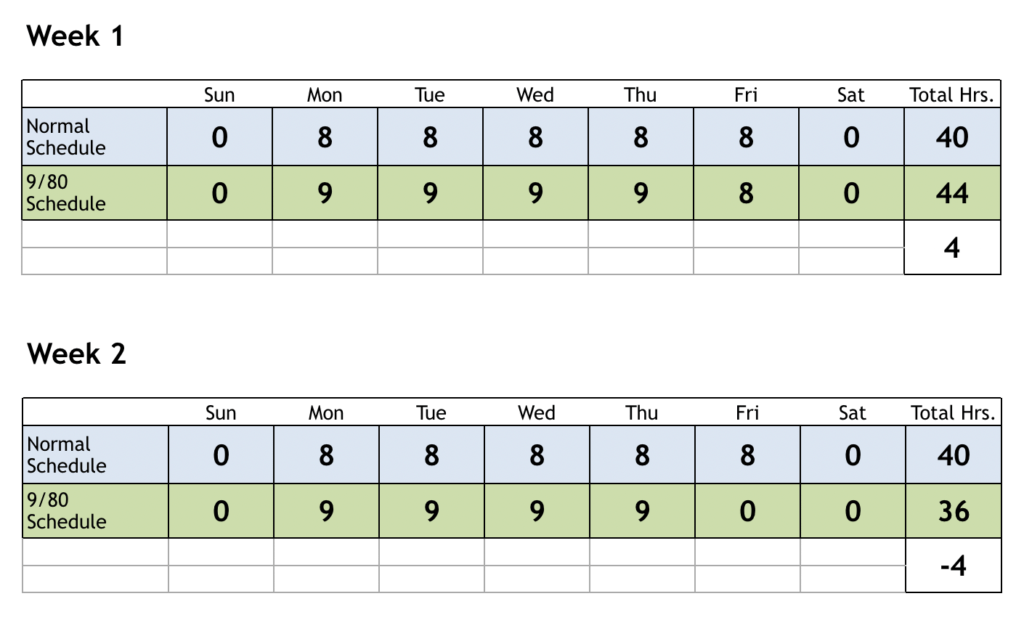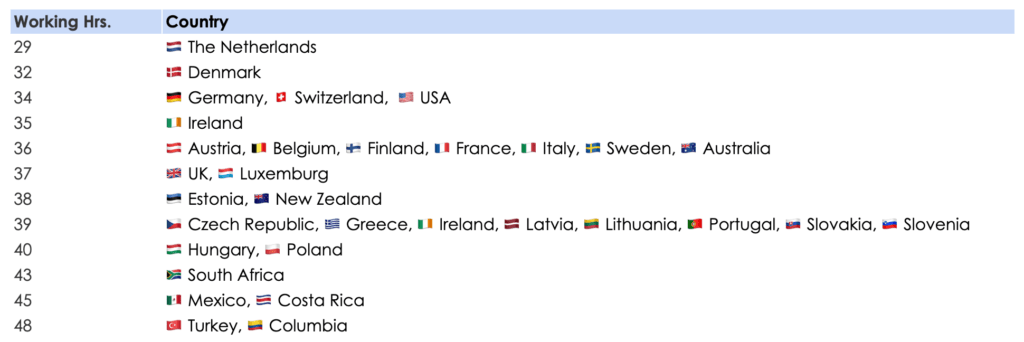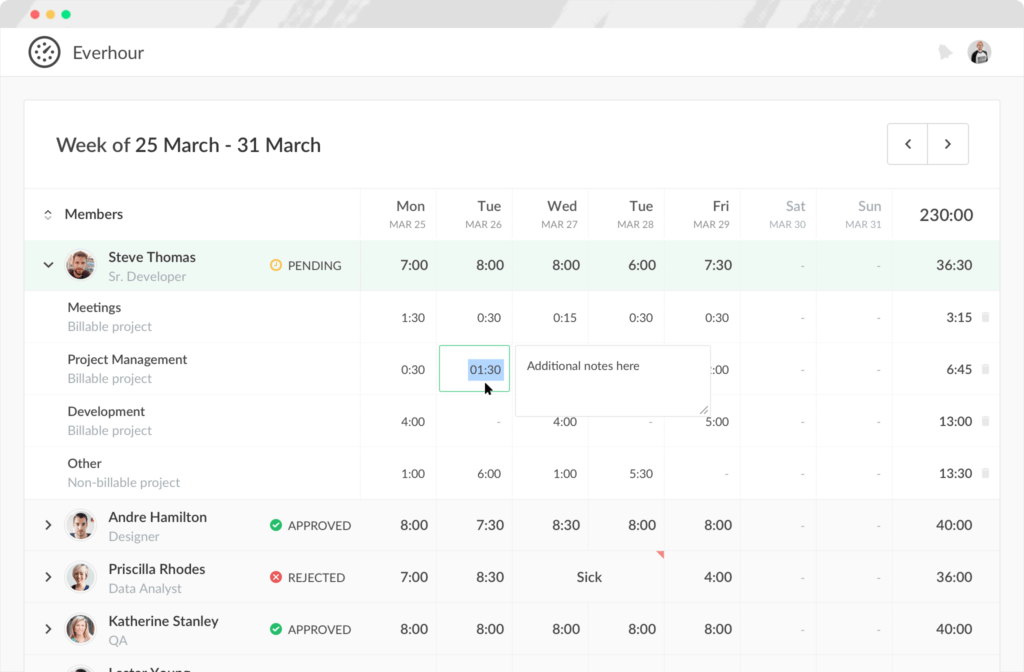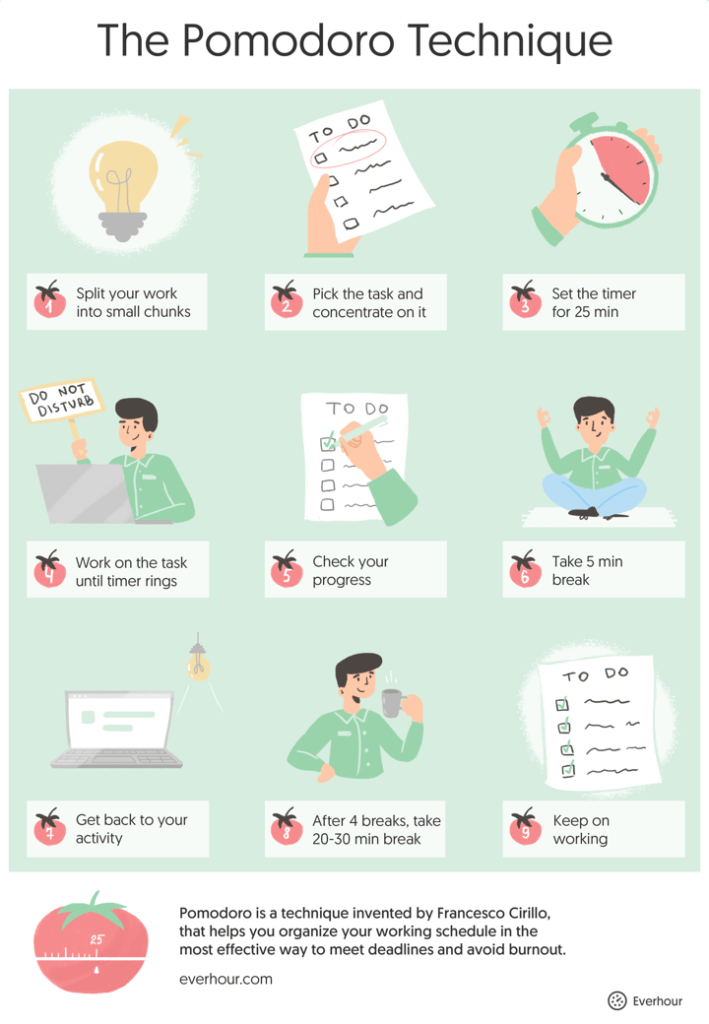A new way to increase productivity and employee morale or another workplace trend? Utilizing the best time tracking software can help manage such schedules effectively. Discover all you need to know about the 9/80 work schedule below.
Boosting productivity and efficiency have always been at the top of any businesses’ priority wishlist. In recent years, more and more companies have been experimenting with time management solutions to get the most out of their employees’ day. We recently discussed the Pomodoro technique as one such example of in-office time management.
But, aside from during-working-hours tricks, companies are increasingly looking at how long we work and are exploring alternatives to the traditional 5/40 working week. One of the top runners proposed is the 9/80 schedule.
Understanding the 9/80 Work Schedule: What It Means
The 9/80 work schedule is a compacted work schedule taking place over a 2-week period, giving employees one extra day off by compressing work into eight 9-hour days and one 8-hour day.

By compacting the working week and adding that extra day off every 14 days, this alternative work-week schedule aims to boost productivity and efficiency while giving employees a little more time to relax.
How Does the 9/80 Schedule Compare?
But how does this compare to a regular working week? Well, of course, what a ‘regular working week’ looks like depends on where you are in the world and your job.
Statistics gathered by the OECD (Organization for Economic Cooperation and Development) show that working hours across the world vary greatly, ranging from 29 to 48 working hours per week.

Here are some of the world’s key stats:
- Lowest working hours: 116 per month – The Netherlands takes the lead in the lowest working hours, with a total of 29 on average per week.
- Most common working weeks: 144 and 156 hours per month – Austria, Belgium, Finland, France, Italy, Sweden, and Australia are the proud owners of one of the most common working hour schedules – a 36-hour week. Followed by a 39-hour week adopted as standard practice by the Czech Republic, Greece, Ireland, Latvia, Lithuania, Portugal, Slovak Republic, and Slovenia.
- Longest working hours: 192 per month – For those workaholics looking to put in extra hours on the job, look no further than Turkey and Columbia. Workers from these two countries rack up an impressive result of 48 working hours per week on average.
So, does working less or more affect productivity?
The short answer – yes!
It’s no secret that numerous research studies have shown that being overworked is detrimental not only to the health of your employees but also to their productivity. And this is the driving force behind the initiative to redefine the work-life balance and new experiments into the most effective work schedule.
Now, let’s look at where the 9/80 falls on that scale.
What Are the Pros And Cons Of A 9/80 Work Schedule?
While the overall working time in a month is around the same as the traditional 5/40 schedule, what effect does that condensed system have? Like everything in life, there are a number of pros and cons to the 9/80 work schedule. Let’s take a look at some of them.
Key Benefits of Implementing a 9/80 Work Schedule
Aims to provide a better work-life balance
Ever really needed to make a doctor or dentist’s appointment, but simply couldn’t find the time during the week, so you kept putting it off and off? Or perhaps you just needed to get some extra tasks around the house done? We’ve all been there. The 9/80 schedule allows employees that little bit of extra time to fill in the gaps and simply take care of those all-important personal tasks.
4-day work weeks
With two 4-day work weeks per month, your employees may find themselves more motivated to get the work of 5 working days squeezed into 4, increasing levels of productivity in your business. Plus, you might just save a little on those office costs by remaining closed an extra two days per month.
Productivity boosts
This is the cornerstone of the 9/80. By adding in those extra days off per month, employees may just have enough time to relax, get stuff done, and feel motivated to give their all to the job. Thus, increasing productivity during those office hours.
Challenges to Consider with a 9/80 Schedule
Actual working hours aren’t that different
In general, the hours worked don’t differ significantly from the traditional 5/40 schedule meaning those benefits of working fewer hours overall don’t apply. Whether or not your employees find a condensed week effective might boil down to individual preference
You might end up paying overtime
Any adjustment to working hours can cause chaos for your company. Not only may your employees find the change challenging, but it can come with a number of legal complications as well, such as tracking and paying for overtime and calculating holiday and sick-leave payments based on the alternative working schedule.
Employee health and morale
Your employees are the backbone of your company; without them, nothing is possible and your success depends on how much of their time and energy they are willing to dedicate to the work at hand. While the 9/80 schedule does provide a full two extra days off per month, those long working hours the remainder of the time could leave your staff with a lack of time to relax in the evenings leading to sleep deprivation, lack of morale, and lower performance.
Should You Consider A 9/80 Work Schedule Option?
Now that you know a little more about the pros and cons, you’re probably wondering if the 9/80 schedule is right for your business. Here are some helpful points to help you decide:
Is the 9/80 legal in your jurisdiction and for your employees?
While we can give you specifics on this one, before making any changes to your company’s working hours, it’s always best to check on the legal implications in your region, especially if your employees can work extended days and if there are any requirements for doing so.
How should overtime be paid?
Some states require overtime to be paid based on hours per day, others on hours per week or per month. Check your local regulations first and foremost before adopting a new working schedule. This is particularly important when calculating holiday pay and sick leave.
Is your business time-based?
Each company reacts to time management in a different manner. Some focus more on productivity and less on actual hours worked, provided the results reflect the effort. If this is your business, then 9/80 may not be for you. However, if your company requires certain business hours to fulfill its function, then a 9/80 schedule may be right up your alley in terms of productivity-boosting effectiveness.
Bonus: Will it work for your employees?
As a business owner or manager, you know your employees best – their strengths and weaknesses, most productive hours, and, of course, those tell-tale signs of poor time management. Deciding to change working hours is the individual decision of any company, so take into account your company’s needs and those of your actual employees.
How Can Everhour Help You Implement a 9/80 Work Schedule Effectively?
If you’ve decided that a 9/80 schedule is the way forward – good for you! While we can’t guarantee success, we commend you for taking the first step into developing your business. So, what comes next?
First, after you’ve got your team on board, you’ll need to know if the changes you’re making are effective and what better way to do that than with metrics. Markers such as productivity and time tracking are useful in seeing how your employees’ performance has been affected.
At Everhour, time tracking is our bread and butter, so when you need help checking up on those new worked hours and how they were used, we’re on hand to provide you with some of the most effective time and attendance software out there.

It’s not just our opinion. Here’s what our customers have to say. As an alternative, you can also use this handy and FREE timesheet and timecard templates to get you and your staff on track and help with the transition.
By tracking time and work done, you’ll be able to see over time how effective your changes were and if you need to consider reverting to the traditional 5/40 schedule or seeking a new alternative to meet your needs. We wish you luck in your new work scheduling adventure! And don’t forget to check out the best productivity apps and the best time management apps out there!
If you are managing a team of 5 or more and looking to boost efficiency, Everhour is the perfect tool to keep your team on track. With seamless time tracking, you can easily estimate task durations, set clear budgets, and generate detailed reports inside Asana, Trello, Jira, or any other pm tool.




